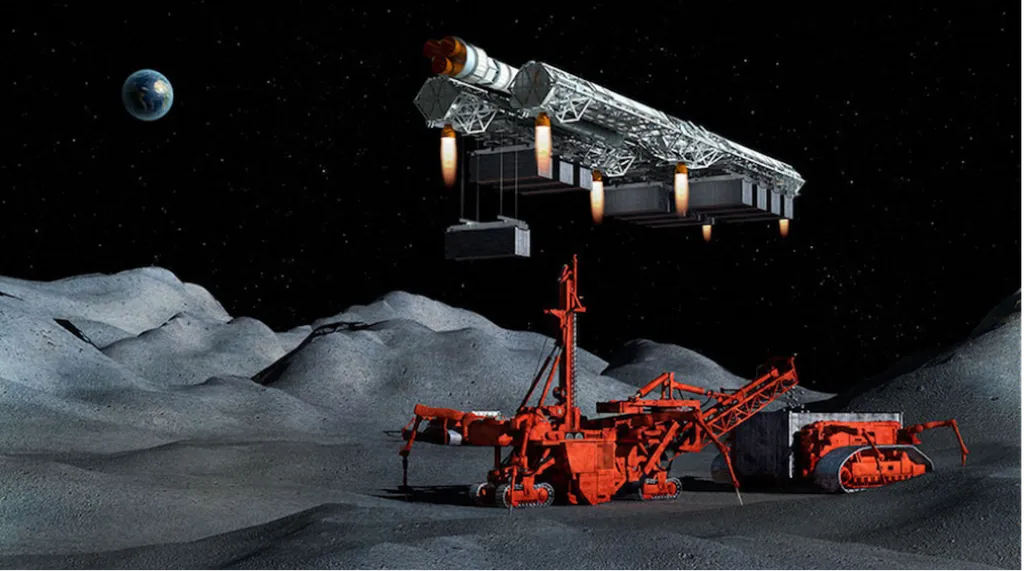The burgeoning space mining industry is at a crossroads, with the current international legal framework struggling to keep pace with rapid technological advancements and private sector ambitions. The Outer Space Treaty (OST) of 1967, a cornerstone of space law, establishes the principle that celestial bodies are not subject to national appropriation and promotes peaceful use. However, it offers little practical guidance on the ownership, extraction, and commercial use of space resources. This gap has led to a patchwork of national laws, such as the U.S. Commercial Space Launch Competitiveness Act (CSLCA) of 2015 and Luxembourg’s space mining laws, which raise concerns about equitable resource distribution and environmental protections.
The lack of a comprehensive international framework creates significant opportunities and risks. On one hand, space mining promises to fuel technological advancements and transform the global economy. On the other hand, the absence of clear legal provisions on ownership, extraction rights, and resource management could lead to competition, conflict, and environmental degradation in outer space. The ethical implications are profound, with the benefits of space mining likely to be monopolized by technologically advanced nations and private corporations, exacerbating global inequalities.
Environmental concerns are equally pressing. Space mining could lead to the accumulation of space debris, alterations to celestial bodies’ physical structure, and disturbances to unexplored ecosystems. The principle of precaution, often invoked in international law to prevent harm when scientific uncertainty exists, should guide the regulation of space mining. For instance, the extraction of Helium-3 from the Moon, a resource believed to have significant potential for energy production, could destabilize the Moon’s geological and environmental balance, causing harm that could reverberate throughout the space ecosystem.
To address these challenges, the establishment of an International Space Mining Authority (ISMA), modeled after the International Seabed Authority (ISA) under the United Nations Convention on the Law of the Sea (UNCLOS), is essential. The ISMA would regulate the extraction of space resources, ensuring that the benefits are shared equitably and that the environmental impact is minimized. It would grant licenses for space mining operations, establish environmental impact assessments (EIAs), and create a Space Resource Fund to support developing countries in accessing space resources and technologies.
The ISMA would also oversee the development of technologies that minimize the environmental impact of mining operations, such as systems for space debris removal and the responsible management of mining byproducts. By fostering global cooperation and technological exchange, the ISMA could help democratize access to space resources, ensuring that developing countries are not left behind in the pursuit of space wealth.
The creation of the ISMA would facilitate international partnerships, promoting the sharing of technology and expertise. This exchange of knowledge and resources could significantly reduce the technological divide between wealthier and less developed nations, promoting greater equity in space exploration. Moreover, the ISMA could play a critical role in overseeing the development of sustainable technologies for space mining, ensuring that operations are environmentally responsible and technologically feasible.
As the commercial exploitation of space resources accelerates, the need for a robust international legal framework has never been more urgent. The current legal landscape, with its outdated treaties and fragmented national laws, is ill-equipped to handle the complexities of space resource extraction. By establishing the ISMA, we can ensure that space mining is conducted in a way that is fair, sustainable, and environmentally responsible. The ISMA would provide a platform for equitable governance, ensuring that the benefits of space resources are shared by all nations and that the space environment is protected for future generations.
The development of the space mining sector will likely shape the future of the global economy, technological advancements, and geopolitical dynamics. The establishment of the ISMA could set a precedent for international cooperation in space exploration, fostering a new era of collective advancement. However, the path forward is not without challenges. The ISMA would need to navigate complex political, economic, and environmental considerations, balancing the interests of spacefaring nations, private corporations, and developing countries. Moreover, the ISMA would need to adapt to the rapidly evolving technological landscape, ensuring that its regulations remain relevant and effective.
In the absence of a comprehensive international framework, the risks of unregulated space mining are significant. The potential for competition, conflict, and environmental degradation in outer space could undermine the peaceful use of space and exacerbate global inequalities. The establishment of the ISMA offers a proactive solution to these challenges, providing a platform for equitable governance and sustainable resource management. By embracing this opportunity, the international community can ensure that space mining serves as a tool for the collective advancement of humanity, rather than a new frontier for exploitation by a select few.

